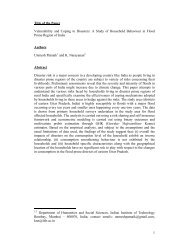Accounting for India's Forest Wealth - Madras School of Economics
Accounting for India's Forest Wealth - Madras School of Economics
Accounting for India's Forest Wealth - Madras School of Economics
- No tags were found...
You also want an ePaper? Increase the reach of your titles
YUMPU automatically turns print PDFs into web optimized ePapers that Google loves.
Increasing the price <strong>of</strong> energy is considered to be criticalintervention <strong>for</strong> achieving the GHG emissions reduction targetsinternationally. Increased energy efficiency through higher investment inrenewables and reduced demand <strong>for</strong> energy services will also help Indiaachieve the emission reduction target <strong>for</strong> which a commitment has beenmade.In the past there have been two sources <strong>of</strong> energy priceincreases: from markets, as (<strong>for</strong> example) the oil price increases in 1973and 1979, and more recently in 2007-08; and from government policy,mainly from taxation such as fuel duty or the Climate Change Levy in theUK. Both these taxes have reduced fuel use below what they wouldotherwise have been, although in the case <strong>of</strong> fuel duty even a relativelyhigh rate <strong>of</strong> duty has not been enough to actually reduce the use <strong>of</strong>transport fuels. In Germany however, a 90 percent increase in dieselprices and 62 percent increase in petrol prices over 1997-2006, largelydriven by increases in taxation, caused the total consumption <strong>of</strong> the mainroad fuels to decrease by 13 percent.But price increases by government keep revenues in the countryand generate tax receipts which allow other taxes to be reduced. There isa very important economic difference between market-driven andtaxation-driven increases in energy prices. In the case <strong>of</strong> the <strong>for</strong>mer theextra revenues accrue to energy companies and energy-producingcountries, at the expense <strong>of</strong> energy-consuming countries. With the latterthe government <strong>of</strong> the energy-consuming country keeps the revenuesfrom the price increase, which, <strong>for</strong> a given level <strong>of</strong> governmentexpenditure, allows it to reduce other taxes, with greatly reducednegative impacts on its economy.Another important difference is that market-driven increases in,<strong>for</strong> example, oil prices will stimulate investment into high-carbonsubstitutes <strong>for</strong> crude oil (e.g. oil shale and tar sands - as indeed has31


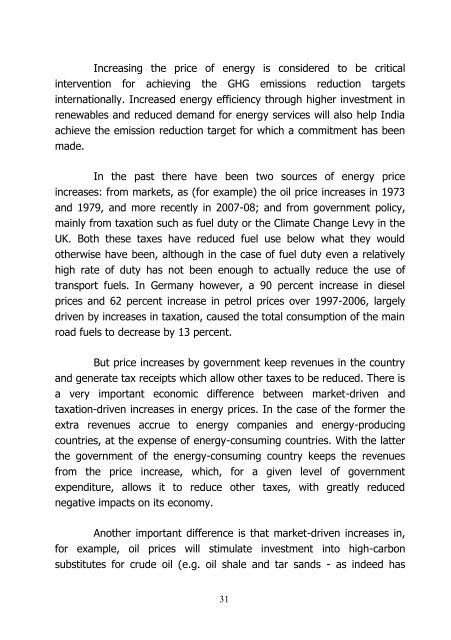
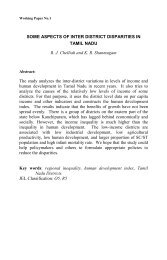

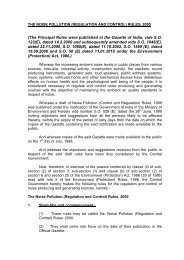
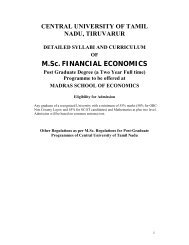
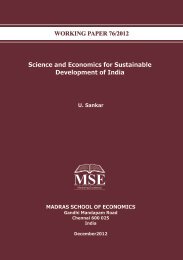
![Curriculum Vitae [pdf] - Madras School of Economics](https://img.yumpu.com/49878970/1/190x245/curriculum-vitae-pdf-madras-school-of-economics.jpg?quality=85)

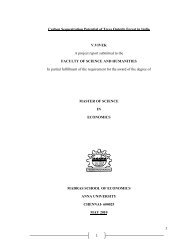

![Curriculum Vitae [pdf] - Madras School of Economics](https://img.yumpu.com/48715201/1/184x260/curriculum-vitae-pdf-madras-school-of-economics.jpg?quality=85)
